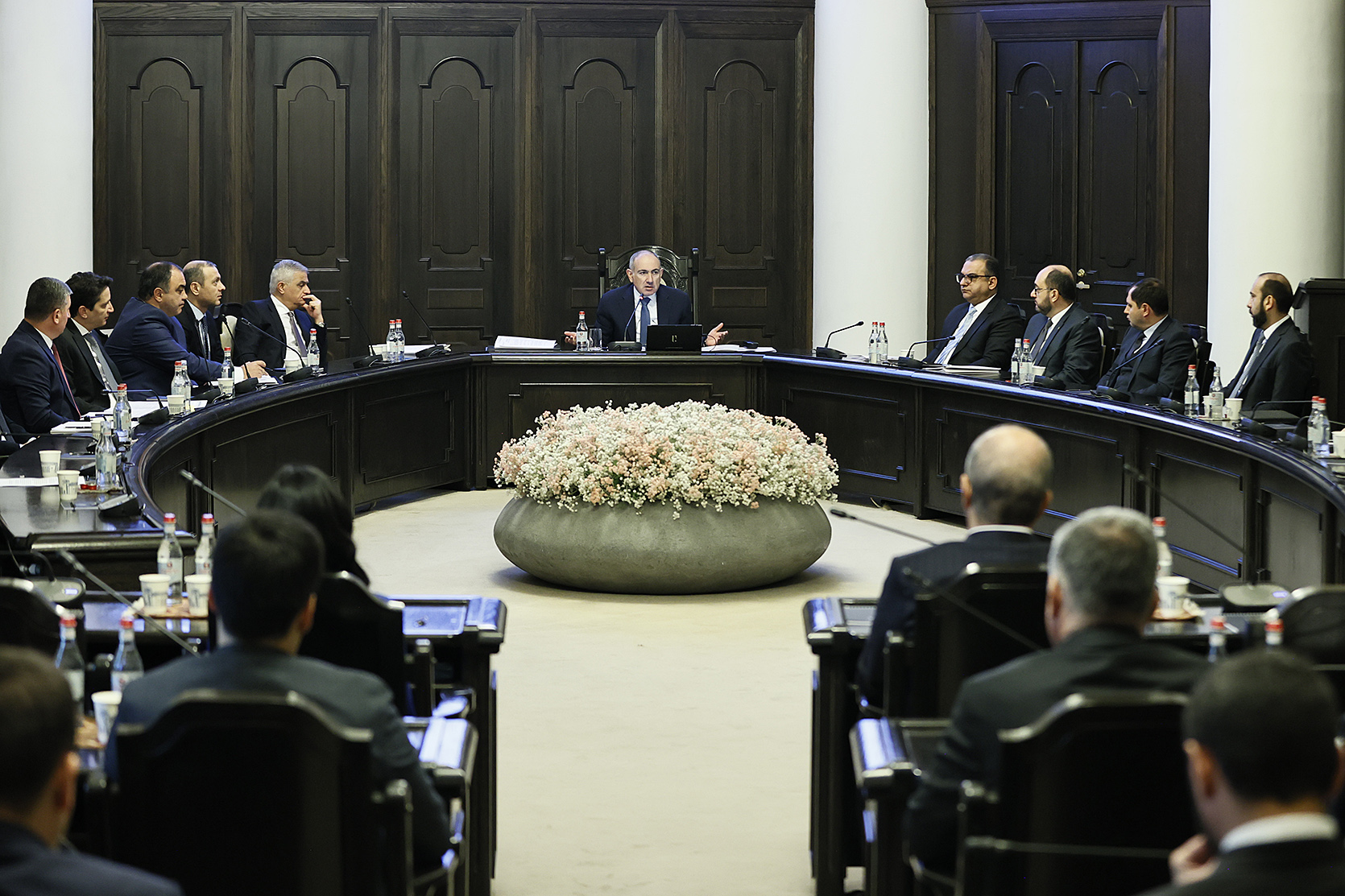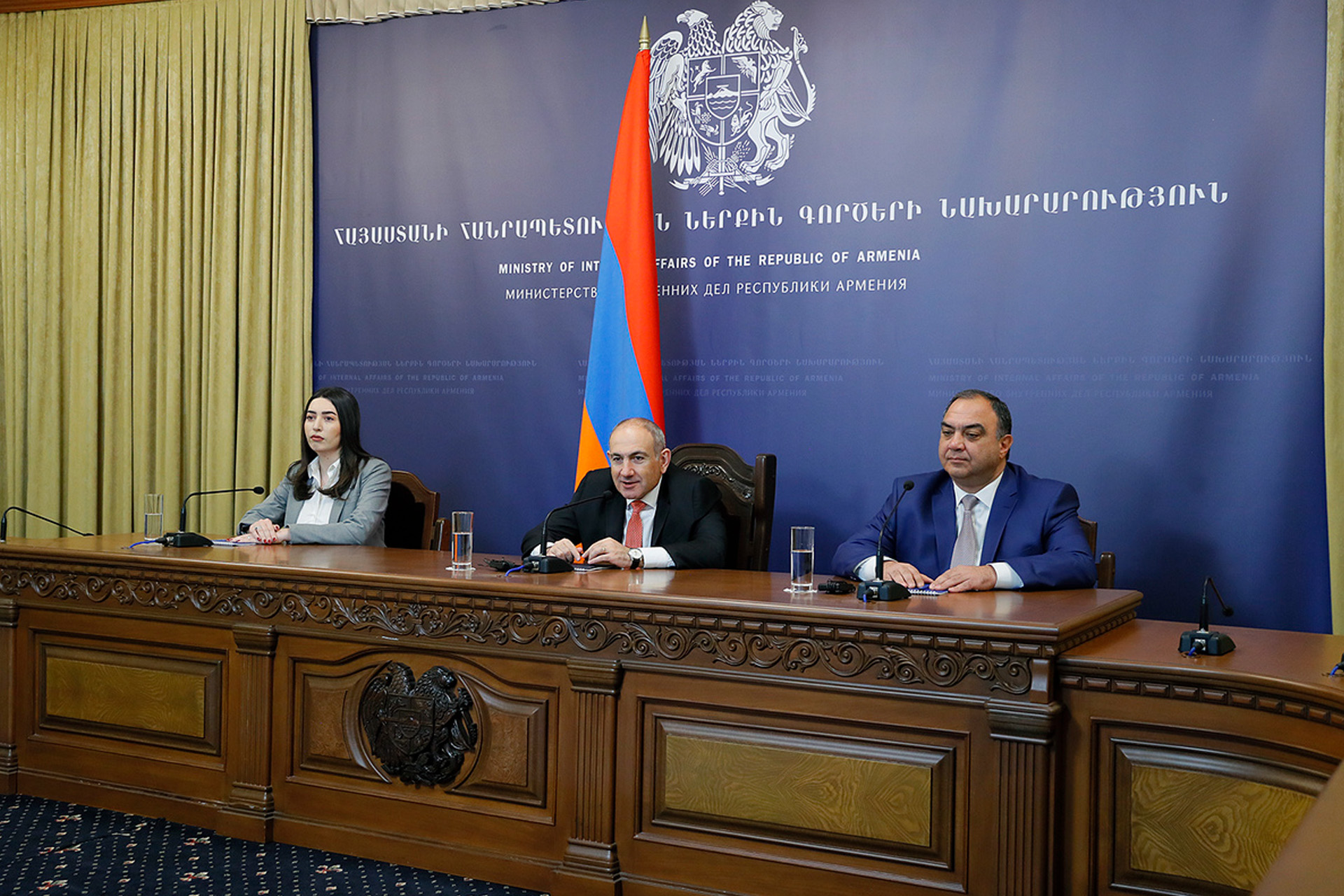Show of discipline? Armenian MP expelled from ruling party
Ovick Aghazaryan expelled from Armenia’s ruling party
MP Ovick Aghazaryan has been expelled from Armenia‘s ruling “Civil Contract” party. Notably, Aghazaryan has been a member of the party since 2015 and is one of its founders. According to the official explanation, he was removed for “leaking confidential information of state and party significance” and “grossly violating moral norms.” Party officials claim that the MP anonymously provided media outlets with information related to national security.
Aghazaryan denies any such incidents but apologized to his party colleagues, “if I caused even minor damage to the team’s reputation.” He plans to continue his work as an independent MP and does not intend to give up his parliamentary mandate. However, he did not rule out the possibility that law enforcement might petition to strip him of his parliamentary immunity.
Political analyst Hakob Badalyan views this as a “show of discipline” intended to warn other MPs and party members.
“It’s a demonstration that they too could face a similar fate—losing the party’s protection and government loyalty—if they dare oppose Nikol Pashinyan’s political agenda,” Badalyan told JAMnews.
Armenian experts broadly dismissed the claim of “leaking confidential information” as insubstantial. They argued that if state secrets had been disclosed, criminal charges would have been raised immediately.
- “In Armenia, it is possible to freely express your opinions without fear”: USAID study
- Demand for Pashinyan’s resignation – live at midnight on Armenia’s Public TV
- Opinion: Armenian authorities “don’t trust the National Security Service, the KGB’s successor”
“I had no intention of disclosing state secrets”
“Everyone understands what a state secret and a document of national importance are. In six years, I have never visited that agency nor sought access to review any classified documents,” the MP said in response to the accusations against him.
Addressing the question of possibly leaking information from closed faction meetings, Aghazaryan stated:
“Perhaps, in conversations with journalists, I said something that shouldn’t have been said. But I don’t recall ever intentionally or deliberately organizing a leak.”
He also expressed outrage over the fact that Nikol Pashinyan had access to his private correspondence, which occurred while his phone was in the hands of investigators.
“It turns out my phone was unlocked. A large amount of material from my phone ended up with the Prime Minister,” he said.
Pashinyan urged Aghazaryan to relinquish his mandate
Armenian Prime Minister Nikol Pashinyan confirmed during an interview on Public Television on November 22 that he had asked Ovick Aghazaryan to relinquish his parliamentary mandate. He expressed hope that his “request would not go unanswered.”
However, at that time, Pashinyan did not mention the disclosure of confidential or state secrets. Instead, he referred to a heated dispute between MP Ovick Aghazaryan and the Chairman of the Investigative Committee, Argishti Kyaramyan, which had occurred in parliament a week earlier. During a live broadcast, Kyaramyan accused Aghazaryan of interfering in a criminal case involving his son, an argument that nearly escalated into a physical altercation.
“What happened in parliament is unacceptable. It would be wrong to leave this without attention. I made a similar request to Argishti Kyaramyan,” Pashinyan added. [Kyaramyan immediately resigned, along with five other high-ranking officials whom Pashinyan had asked to step down.]
MP rejects Prime Minister’s request
Ovick Aghazaryan told journalists that “there is pressure from party members.” He said he was considering the prime minister’s proposal, as some urged him to give up his mandate, while others advised against it.
He spent about ten days deliberating. When asked by journalists, he mentioned receiving a call from a friend living in Moscow, who advised him not to fulfill the prime minister’s request until they returned from Russia. Who this friend is and why their opinion mattered so much to Aghazaryan remains unclear.
On December 2, Aghazaryan finally announced his decision. He stated that he rejected Pashinyan’s request and would not relinquish his mandate. Aghazaryan explained his decision by referencing the ongoing criminal case involving him:
“People might associate my resignation with the outcome of the investigation. If I had agreed to the prime minister’s request, then, even if I were later proven innocent, the public might think I accepted a deal. Conversely, if I am proven guilty, I will naturally be stripped of my parliamentary mandate.”
The MP announced his decision to leave the ruling faction the morning after the party decided to expel him:
“I do not want to create additional difficulties for my party colleagues or force them to discuss my exclusion from the faction. I am personally announcing, with great pain, that I am leaving the faction.”
Political commentator Hakob Badalyan
“In ‘Civil Contract,’ internal party reshuffles are taking place, and this process is being driven by Nikol Pashinyan. In my view, these changes are based purely on personal calculations or those of a very close inner circle. Party decisions are simply subordinated to these calculations.
Of course, it’s difficult for me to say what the calculations regarding Ovick Aghazaryan were. But I think the process against him wasn’t started to punish him for a specific action but to demonstrate the possibility of punishment to other MPs and party members.
Why is it necessary to tighten internal party controls? This is because the international situation remains unpredictable, and Armenia continues to face various challenges.
Naturally, for Pashinyan, maintaining control within the party is crucial, especially in the context of upcoming electoral processes.
Parliamentary elections are not far off. Pashinyan understands that achieving the desired results with this team will be extremely difficult. If the party’s ratings were previously low but compensated by Pashinyan’s personal rating, now he faces challenges with his own popularity as well.
Managing sentiments and the internal situation within the team becomes more important for him. He is likely to initiate internal party changes, review the team, and shift the paradigm to extract some advantage for the election campaign.
Most likely, sacrifices within the team will be necessary. Naturally, this scenario could trigger a collective instinct of self-preservation within the party. While such processes are not yet visible, Pashinyan is trying to establish stricter internal management to implement the required changes without resistance.”
Ovick Aghazaryan expelled from Armenia’s ruling party





















